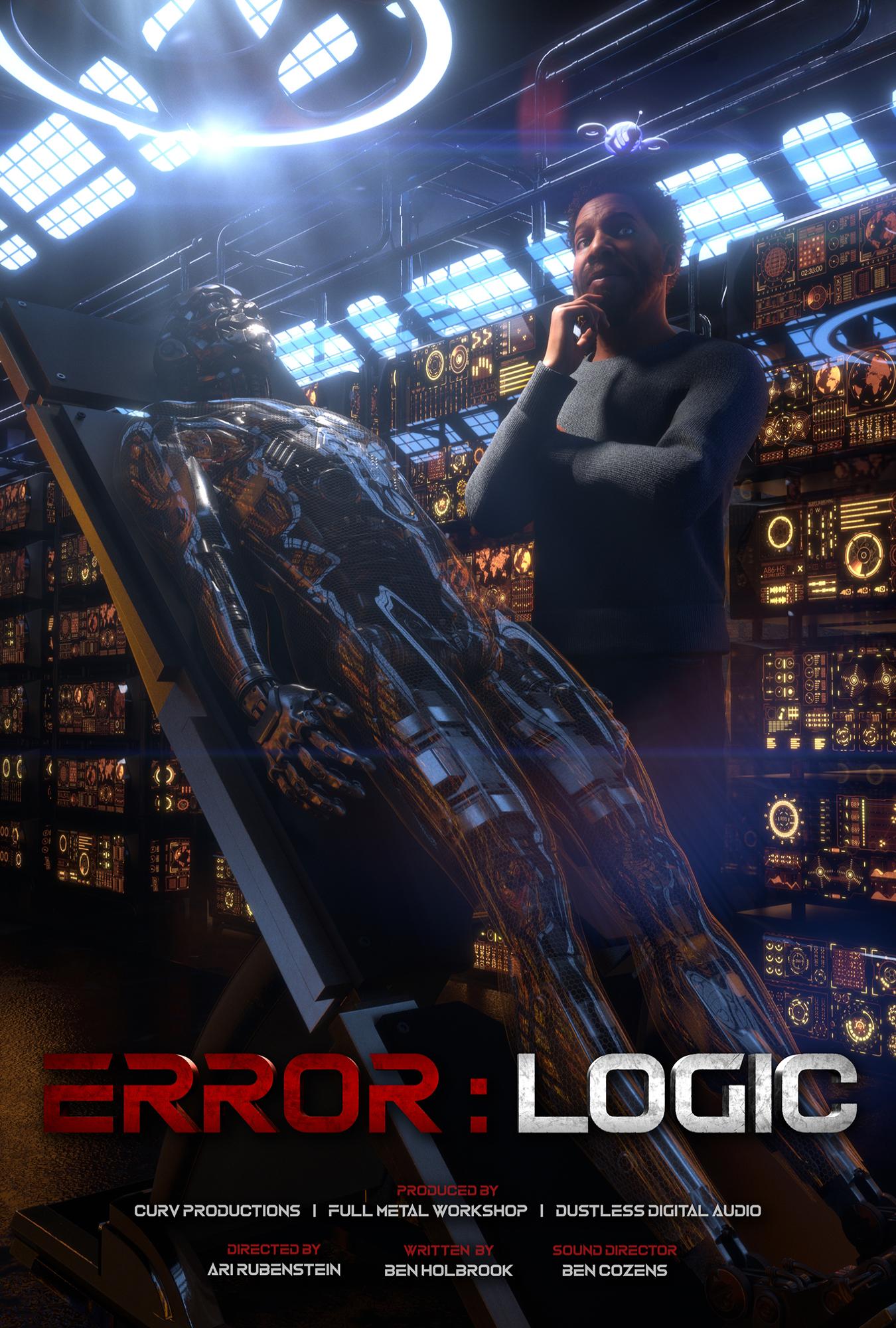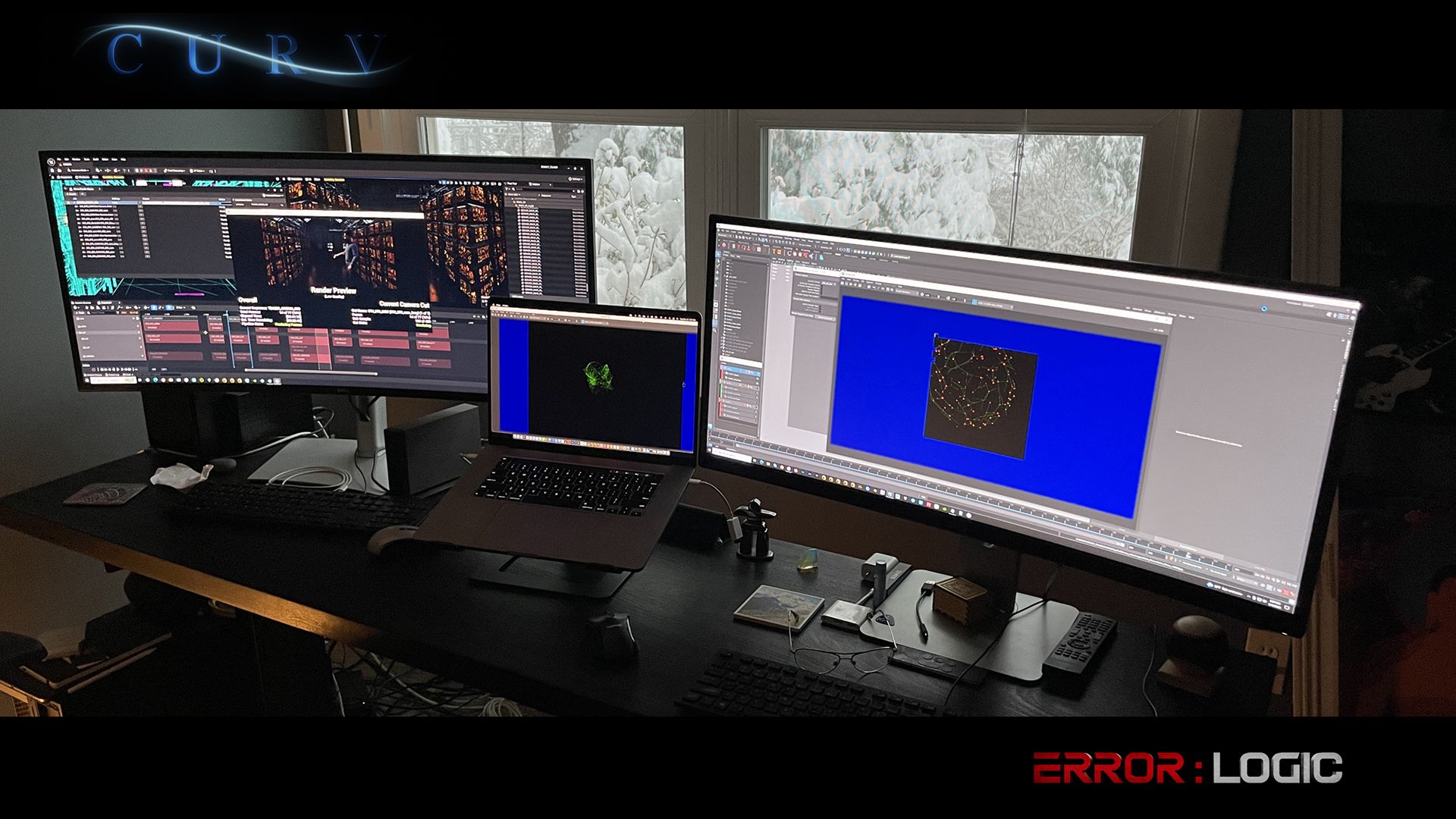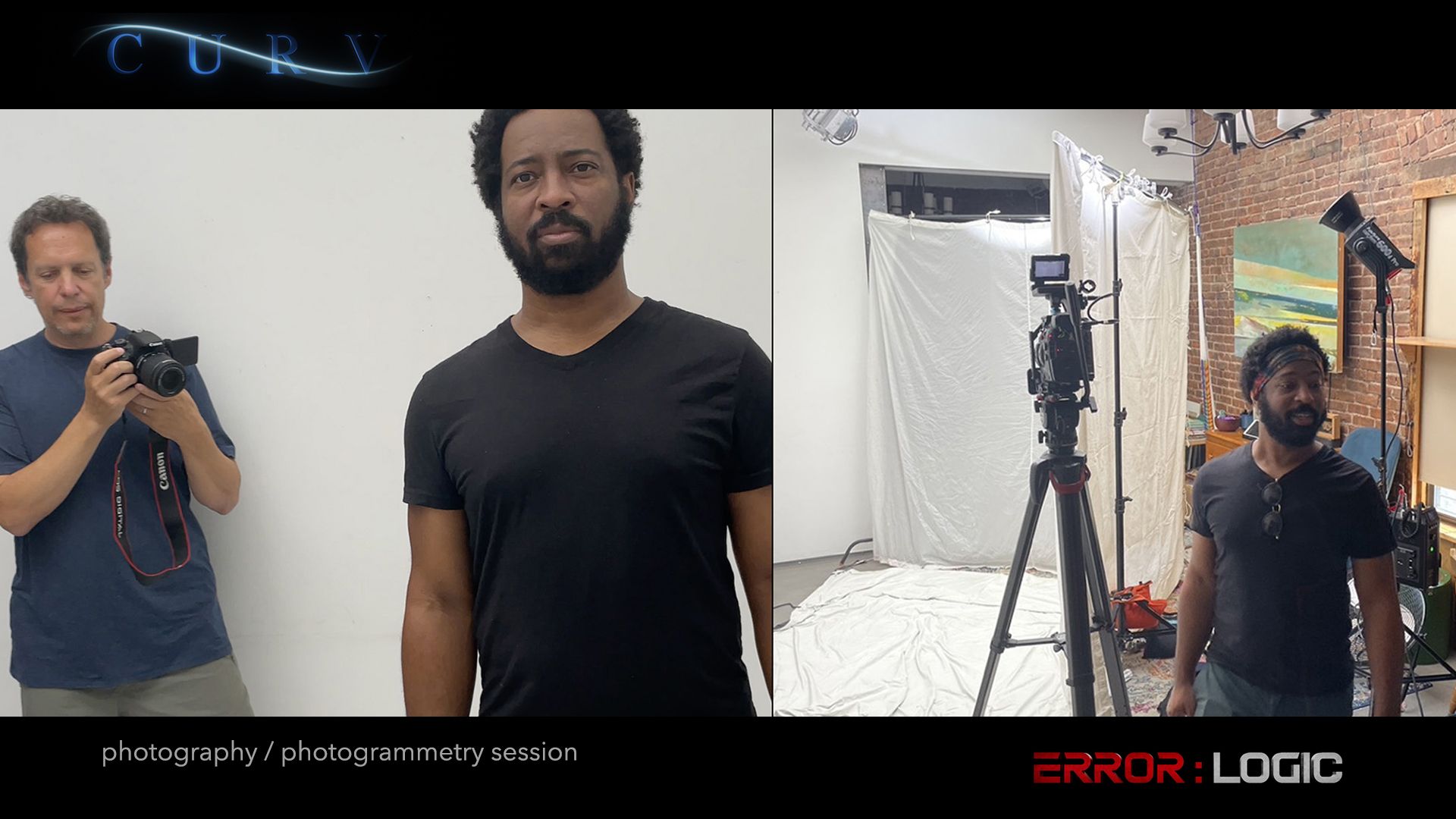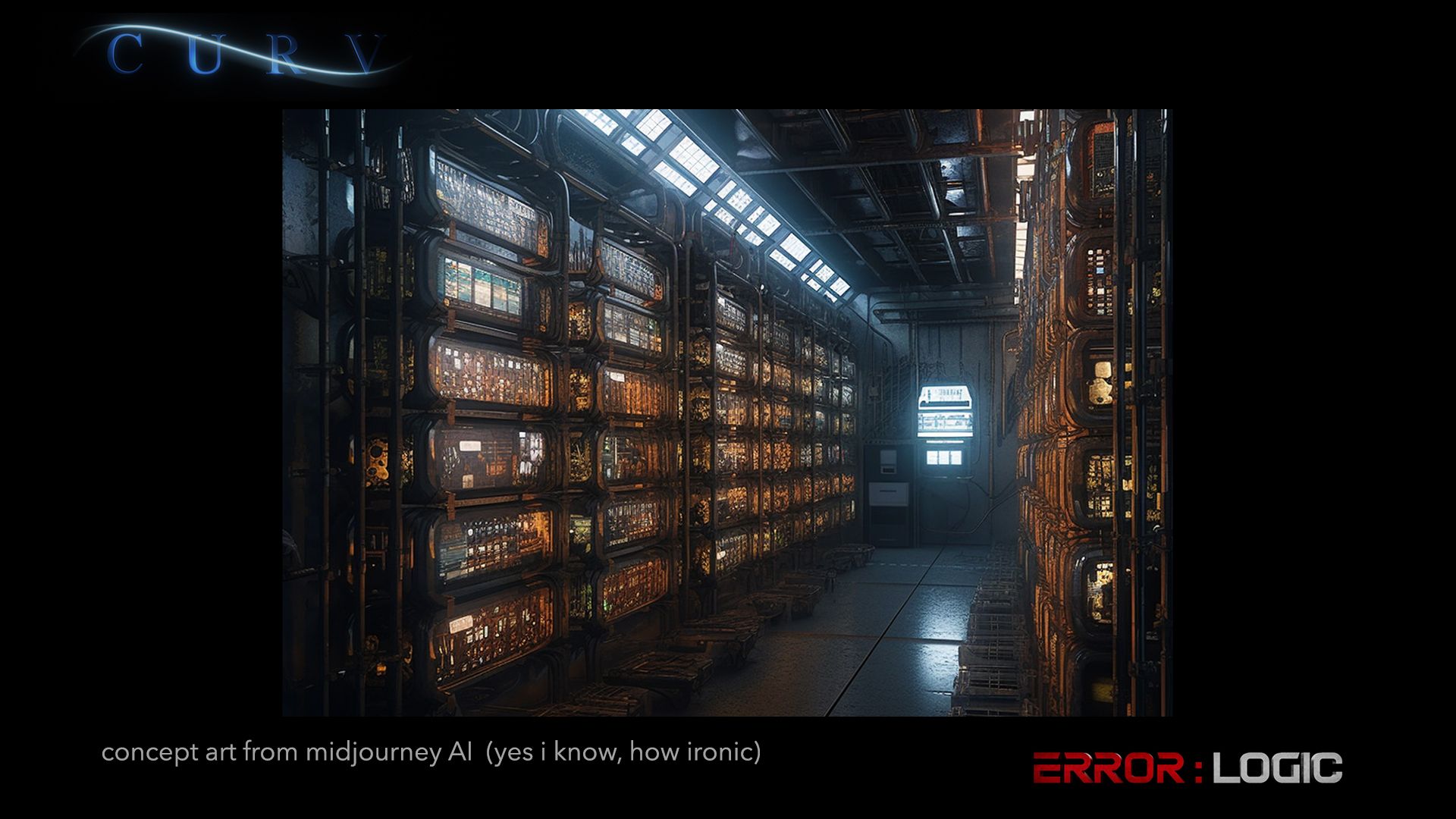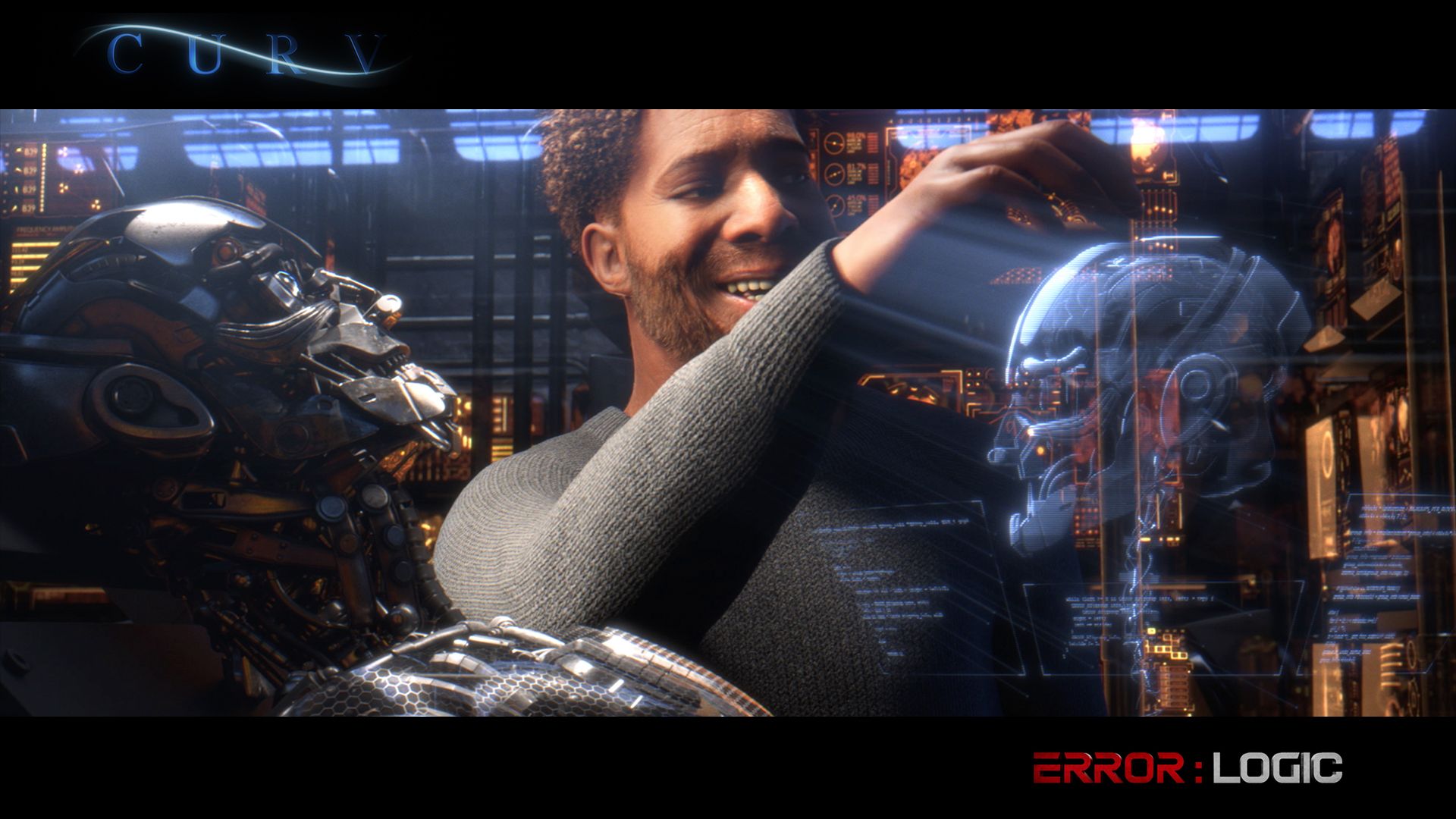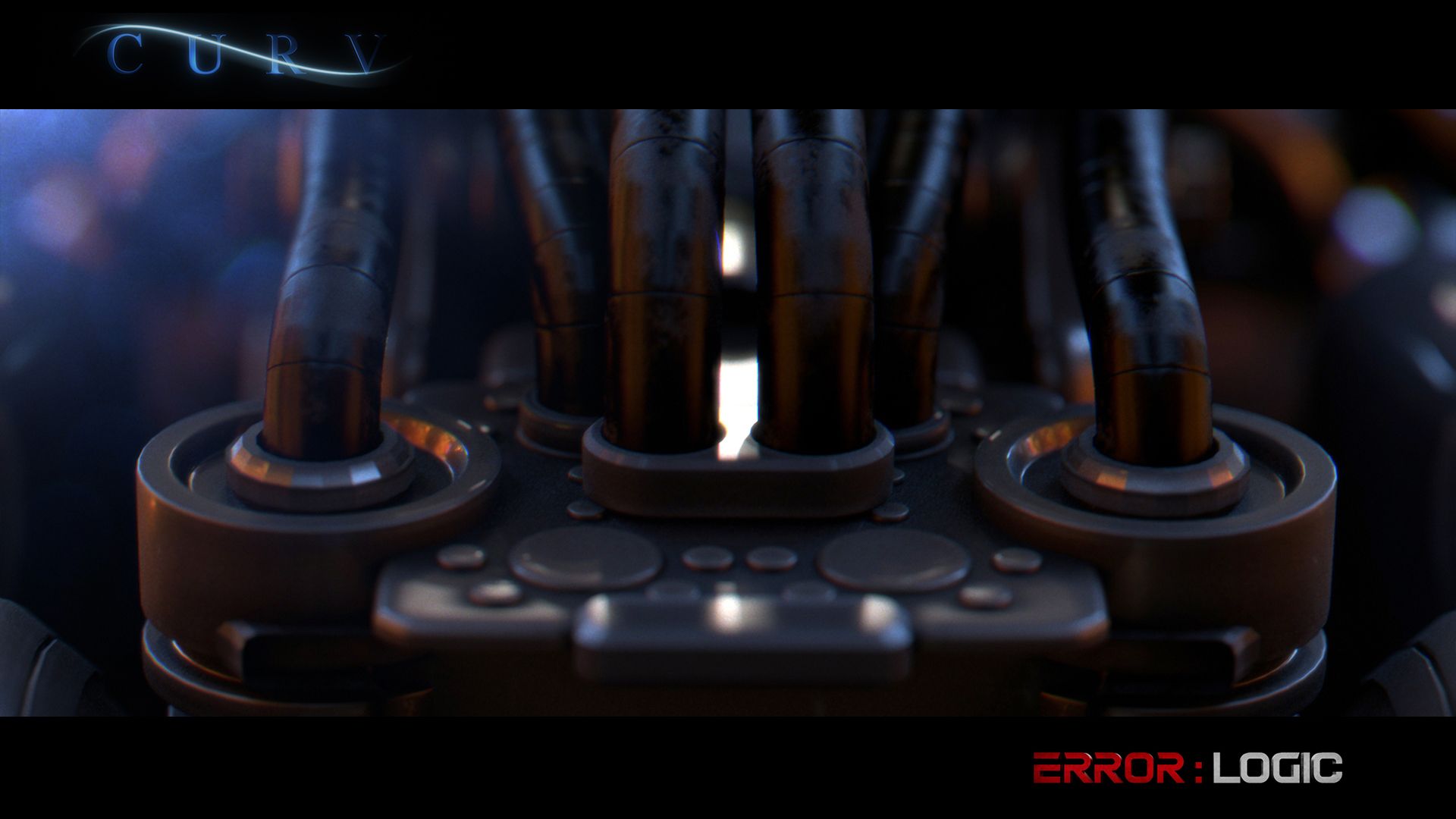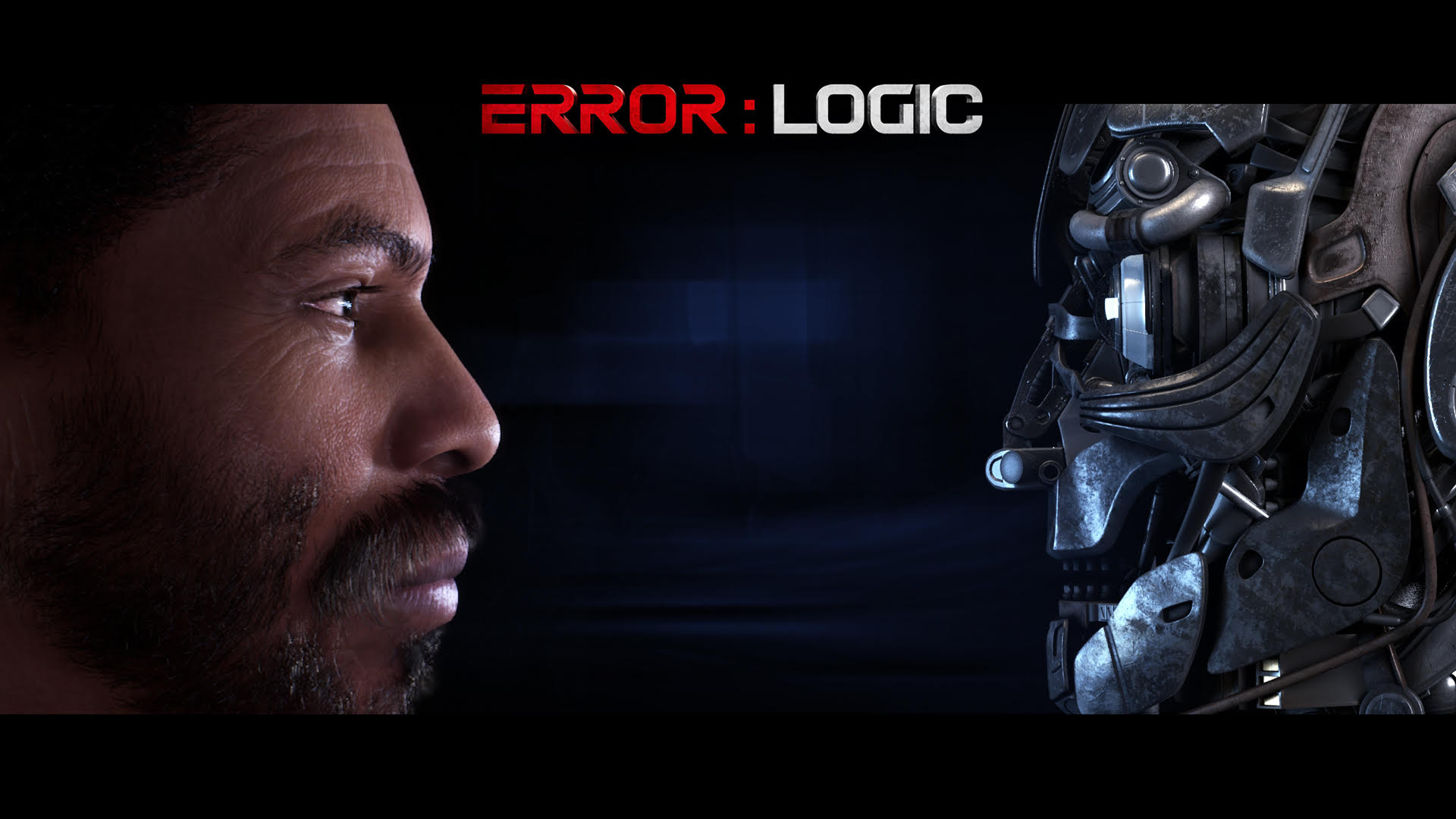
ERROR : LOGIC
A robotics engineer and his comical assistant (a mechanical drone) on the verge of creating the worlds first sentient robot
Synopsis
Set in a powerful subterranean computer lab in the not to distant future, a robotics engineer labors over his greatest creation. Endeavoring to bring sentient life to a robot through artificial intelligence (AI), his drone assistant aids him in his research and carries out his directive. What follows is a short cautionary tale, a whimsical take on several old adages, ‘be careful what you wish for’, ‘all that glitters is not gold’, and ‘the road to hell is paved with good intentions’. This comical short sketch is essentially a retelling of Mary Shelley’s ‘Frankenstein Monster’, where our mad scientist and his sidekick drone end up with more than they bargained for.
DIRECTOR’S STATEMENT
As we enter 2024 talk of how AI will become a revolution in the arts and technology is everywhere. The vision of considerable changes in the way we view reality, interact with each other, and work, are exciting to some, and scary to others. Having spent over thirty years steeped in the variety of technologies which encompass computer graphics, I can safely say that my perspective on this wide ranging topic is more existential than any particular bias towards the good or ill inherent. I see these advancements in AI as inevitable, due to how humans evolve through industry, their fear, and hubris.
Our means of survival are dictated by the industries we’ve developed and the economic structure that supports and enables them. As such, we will always look for efficiencies through the use of tools and processes to do our jobs better, faster, and more effectively. AI is simply the result of how we work, as the saying goes “work smarter, not harder”. As individuals and as businesses, we understandably fear falling behind the competition and losing our edge. We crave success, and the freedom which results, and so we run, not walk, towards anything which provides it. And in the process, our hubris seems to know no bounds, the notion that we might create that which destroys us, seems unfortunate and yet grotesquely poetic, in line with the paradox that is us.
And so what can we do as we rush headlong towards our future ? This future seems to find us utterly dependent on the machines we ourselves have created, prisoners in a cage of our own making. And in worse case, our wars will evolve into armies of unmanned drones controlled by the same machines, at once under our control, then through AI, beyond it.
The answer, whether it is unlikely, or even somewhat unimaginable, is simple. We need to reconnect in a more human way, and consider the systems that we’ve created as secondary. For my part, it’s getting back to nature, and recognizing what technology around me is a cage, is detrimental, and discarding it. Simply opting out and resisting the societal pressures of conformity.
“error : logic” is a statement about the error in our logical assumptions about growth in business and in our personal lives. That our creations aren’t always worth admiration, and that sometimes, ironically, the more laborious pre-technological ‘organic’ methods are healthier for all of us, than a world predicated on the pursuit of efficiency and convenience. The easier paths, whether gained initially through hard work and innovation, are often seductive, corruptive, and corrosive. That what technology provides for you today, may very well take away from you tomorrow.
Be careful out there, and try as you might, to put a little soul in the machine.
Ari Rubenstein
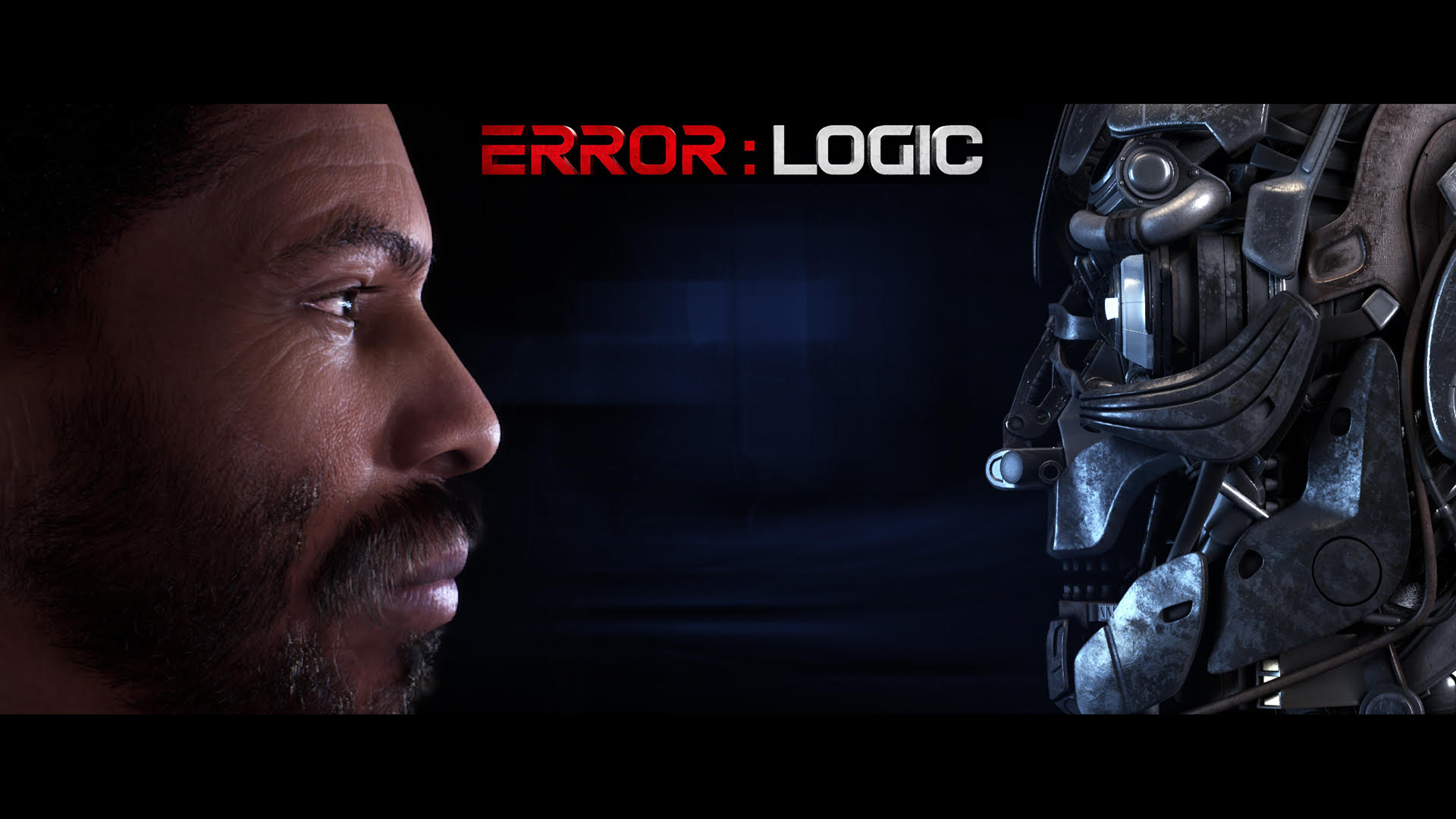
ERROR : LOGIC
A robotics engineer and his comical assistant (a mechanical drone) on the verge of creating the worlds first sentient robot
Synopsis
Set in a powerful subterranean computer lab in the not to distant future, a robotics engineer labors over his greatest creation. Endeavoring to bring sentient life to a robot through artificial intelligence (AI), his drone assistant aids him in his research and carries out his directive. What follows is a short cautionary tale, a whimsical take on several old adages, ‘be careful what you wish for’, ‘all that glitters is not gold’, and ‘the road to hell is paved with good intentions’. This comical short sketch is essentially a retelling of Mary Shelley’s ‘Frankenstein Monster’, where our mad scientist and his sidekick drone end up with more than they bargained for.
DIRECTOR’S STATEMENT
As we enter 2024 talk of how AI will become a revolution in the arts and technology is everywhere. The vision of considerable changes in the way we view reality, interact with each other, and work, are exciting to some, and scary to others. Having spent over thirty years steeped in the variety of technologies which encompass computer graphics, I can safely say that my perspective on this wide ranging topic is more existential than any particular bias towards the good or ill inherent. I see these advancements in AI as inevitable, due to how humans evolve through industry, their fear, and hubris.
Our means of survival are dictated by the industries we’ve developed and the economic structure that supports and enables them. As such, we will always look for efficiencies through the use of tools and processes to do our jobs better, faster, and more effectively. AI is simply the result of how we work, as the saying goes “work smarter, not harder”. As individuals and as businesses, we understandably fear falling behind the competition and losing our edge. We crave success, and the freedom which results, and so we run, not walk, towards anything which provides it. And in the process, our hubris seems to know no bounds, the notion that we might create that which destroys us, seems unfortunate and yet grotesquely poetic, in line with the paradox that is us.
And so what can we do as we rush headlong towards our future ? This future seems to find us utterly dependent on the machines we ourselves have created, prisoners in a cage of our own making. And in worse case, our wars will evolve into armies of unmanned drones controlled by the same machines, at once under our control, then through AI, beyond it.
The answer, whether it is unlikely, or even somewhat unimaginable, is simple. We need to reconnect in a more human way, and consider the systems that we’ve created as secondary. For my part, it’s getting back to nature, and recognizing what technology around me is a cage, is detrimental, and discarding it. Simply opting out and resisting the societal pressures of conformity.
“error : logic” is a statement about the error in our logical assumptions about growth in business and in our personal lives. That our creations aren’t always worth admiration, and that sometimes, ironically, the more laborious pre-technological ‘organic’ methods are healthier for all of us, than a world predicated on the pursuit of efficiency and convenience. The easier paths, whether gained initially through hard work and innovation, are often seductive, corruptive, and corrosive. That what technology provides for you today, may very well take away from you tomorrow.
Be careful out there, and try as you might, to put a little soul in the machine.
Ari Rubenstein

